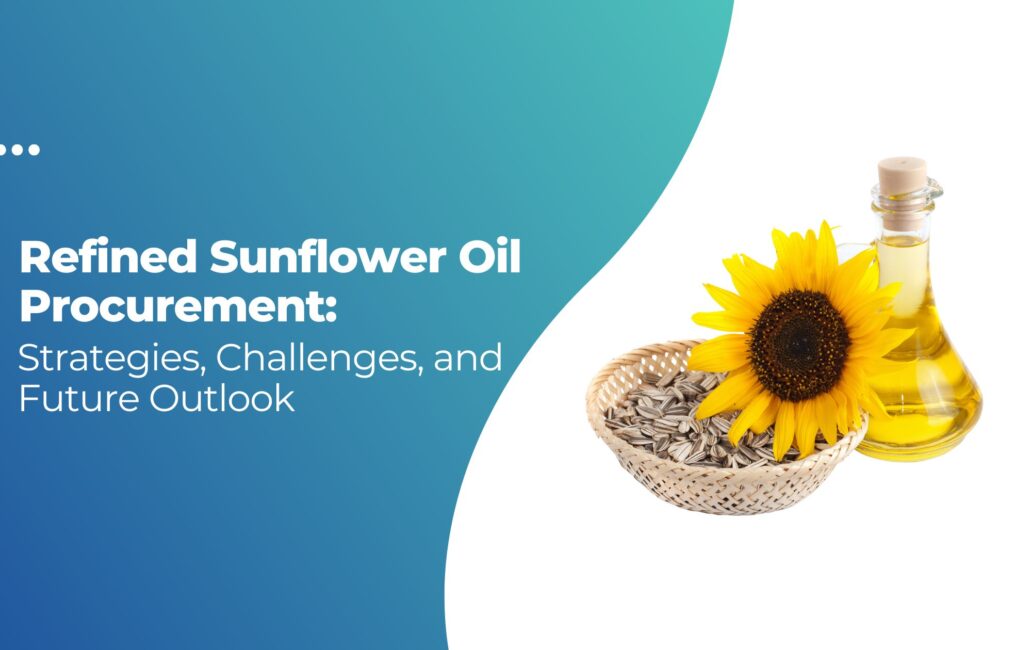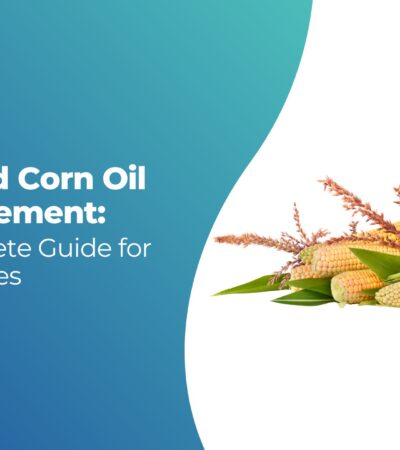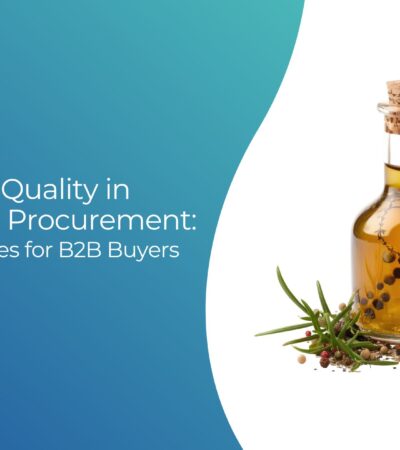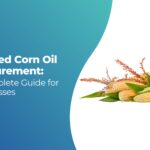Refined Sunflower Oil Procurement: Strategies, Challenges, and Future Outlook

Edible oils are at the heart of global food consumption, playing a crucial role in everything from household cooking to large-scale food production. Among these, refined sunflower oil has carved out a leading position thanks to its light taste, nutritional profile, and versatile applications. It is not only a kitchen essential but also a key ingredient across industries like pharmaceuticals, cosmetics, and packaged foods.
For businesses operating in the oil procurement business, sunflower oil procurement has become more than just a purchasing function—it is a strategic necessity. With increasing global demand, supply chain disruptions, and growing sustainability expectations, companies need to approach edible oil procurement with precision and foresight.
This blog serves as a comprehensive guide for businesses, exploring everything from the basics of refined sunflower oil to procurement strategies, challenges, and future trends. By the end, you’ll understand why refined sunflower oil is a vital commodity and how to optimize procurement in a competitive and evolving marketplace.
Understanding Refined Sunflower Oil
So, what exactly makes sunflower oil “refined”? The refining process involves several steps, including degumming, neutralization, bleaching, and deodorization, which remove impurities and ensure high purity standards. The result is refined sunflower oil that is lighter in color, free from odors, and has a longer shelf life compared to crude oil.
This oil is celebrated for its health benefits—it contains Vitamin E, healthy unsaturated fats, and is free from cholesterol. Beyond its nutritional profile, its stability at high cooking temperatures makes it ideal for frying, baking, and processed food manufacturing.
Its applications go far beyond food. In the pharmaceutical sector, refined sunflower oil is often used as a carrier oil in medicines. In cosmetics, it’s a popular ingredient in creams and lotions due to its moisturizing properties. Compared to other edible oils like palm oil or soybean oil, sunflower oil stands out for its neutral flavor, lighter texture, and premium positioning in the global market.
For businesses, ensuring oil quality standards is non-negotiable, and refined sunflower oil offers both purity and performance.
The Global Market for Sunflower Oil
The global edible oil market is vast, with sunflower oil accounting for a significant share. Major production hubs include Ukraine and Russia—together responsible for over half of global output—as well as Argentina, India, and the European Union.
Global demand for sunflower oil continues to rise due to growing consumer preferences for healthier oils and the expansion of the packaged food industry. Countries like India, which imports a large share of its edible oil needs, are key players in the sunflower oil import trends shaping global supply chains.
Import-export dynamics also add layers of complexity. Supply often depends on geopolitical conditions, shipping routes, and harvest yields. For example, disruptions in Eastern Europe have had ripple effects across the world, pushing up prices and increasing dependency on alternate producers.
Despite these challenges, the refined sunflower oil market is projected to grow steadily, supported by the global shift towards healthier edible oils and rising consumption across emerging economies. For companies in the oil procurement business, keeping track of these market movements is critical to long-term planning.
Why Businesses Prefer Refined Sunflower Oil
Refined sunflower oil has emerged as a preferred choice among businesses for several reasons. First, its stability and longer shelf life make it reliable for manufacturers who need consistent quality in large volumes. Its neutral taste ensures it blends seamlessly into processed foods without altering flavor profiles.
Consumer demand is another driving force. Health-conscious buyers are shifting towards oils perceived as lighter and healthier compared to palm or soybean oil. This shift directly impacts procurement decisions in the edible oil procurement sector.
From a cost perspective, while refined sunflower oil may sometimes be priced higher than palm or canola oil, it offers long-term value. Its lower absorption during frying reduces oil usage, translating into cost savings for restaurants and food manufacturers. For FMCG companies, the combination of quality and consumer preference makes sunflower oil a strategic procurement choice.
Challenges in Sunflower Oil Procurement
Despite its many advantages, sunflower oil procurement comes with challenges that businesses must address strategically:
- Supply Chain Risks: Geopolitical issues, trade restrictions, and shipping delays can disrupt availability. For instance, reliance on a few major producing nations increases vulnerability.
- Price Volatility: Weather conditions, harvest fluctuations, and global trade dynamics contribute to unstable pricing, making budgeting difficult for procurement teams.
- Quality Inconsistency: Not all suppliers maintain uniform refined oil quality standards, leading to batch variations that can disrupt production consistency.
- Regulatory Compliance: Businesses must ensure suppliers meet certifications like FSSAI, ISO, or HACCP, which adds complexity in global procurement.
- Sustainability Concerns: With rising focus on sustainable oil sourcing, companies face pressure to ensure environmentally and ethically responsible procurement practices.
To overcome these issues, businesses need strong procurement strategies, reliable supplier networks, and risk management systems.
Strategic Approaches to Refined Sunflower Oil Procurement
To navigate the challenges of the oil procurement business, companies must take a proactive and strategic approach. Instead of treating procurement as a transactional activity, businesses should see it as a long-term value driver. Here are some proven strategies:
1. Choosing Reliable Edible Oil Suppliers
Not all suppliers can meet the standards required for refined sunflower oil. Businesses should prioritize suppliers with strong reputations, certifications, and proven track records in consistent delivery. Working with bulk sunflower oil suppliers who understand international quality standards helps minimize risk.
2. Building Long-Term Supplier Relationships
Short-term contracts may offer flexibility, but long-term partnerships bring stability, better pricing, and guaranteed supply. Establishing trust with suppliers fosters collaboration, ensuring both parties benefit even during volatile market conditions.
3. Leveraging Procurement Platforms and Networks
Digital B2B platforms and global sourcing networks give procurement teams access to a wider pool of suppliers, competitive prices, and transparent processes. Many businesses are adopting procurement software to streamline sourcing, monitor supply chain performance, and compare vendor credibility.
4. Cost Optimization Strategies
Price volatility is a persistent challenge in the edible oil procurement market. Businesses can hedge risks through forward contracts, bulk buying, and diversifying suppliers across regions. Such strategies stabilize costs and improve long-term budgeting accuracy.
5. Ensuring Quality Assurance
Maintaining refined oil quality standards is crucial for industries like food processing and pharmaceuticals. Businesses should ensure suppliers follow certifications such as ISO, HACCP, and FSSAI. Additional measures like third-party lab testing and product traceability build further confidence in supplier reliability.
6. Case Example: FMCG Procurement
Large FMCG companies often procure sunflower oil in bulk for snacks, baked goods, and packaged foods. Partnering with reliable procurement companies allows them to secure uninterrupted supply, negotiate favorable bulk rates, and ensure compliance with food safety standards—helping them stay competitive in the global food industry procurement ecosystem.
The Future of Refined Sunflower Oil Procurement
The future of sunflower oil procurement is being shaped by technology, sustainability, and shifting global trade dynamics. Businesses must adapt to these changes to remain competitive.
- Digital Procurement Tools: Advanced platforms, including AI-powered forecasting systems, are helping companies predict demand, optimize inventory, and streamline procurement processes.
- Sustainable Oil Sourcing: Growing pressure from consumers and regulators means companies must prioritize ethical and environmentally responsible sourcing. This includes working with suppliers committed to sustainable farming practices and transparent operations.
- Direct Sourcing Models: Contract farming and direct partnerships with producers are on the rise, offering more control over supply, pricing, and quality.
- Future Outlook: Balancing demand growth with cost efficiency and sustainability will be key. Businesses that embrace innovation and responsible sourcing will lead the way in the sustainable edible oil procurement landscape.
Also read: Sustainable Edible Oil Procurement: Meeting Market Demand Responsibly
How Neshiel Adds Value in Sunflower Oil Procurement
For businesses seeking a dependable procurement partner, Neshiel plays a critical role in bridging supply chain complexities with tailored solutions.
- Trusted Procurement Partner: With deep expertise in the oil procurement business, Neshiel ensures businesses receive high-quality, refined sunflower oil consistently.
- Focus on Quality & Reliability: Every batch is sourced with strict attention to refined oil quality standards, ensuring safety and compliance with global certifications.
- Global Supplier Network: Neshiel connects businesses to a wide pool of trusted suppliers, making procurement more secure and cost-effective.
- Custom Solutions for B2B Clients: Whether it’s FMCG companies, food processors, or pharmaceutical manufacturers, Neshiel designs procurement strategies to match each client’s unique needs.
- Transparency & Competitive Pricing: By emphasizing clear communication, compliance, and fair pricing, Neshiel builds trust and long-term relationships with its partners.
With its strong foundation in refined sunflower oil sourcing and deep understanding of the global market, Neshiel positions itself as more than a vendor—it is a true partner in procurement.
Conclusion
As global demand for edible oils grows, sunflower oil procurement will continue to be a priority for businesses across industries. The appeal of refined sunflower oil lies in its stability, consumer preference, and wide applicability. However, businesses must navigate challenges like price volatility, compliance, and sustainability with strategic sourcing practices.
By working with trusted partners, adopting digital procurement solutions, and focusing on long-term supplier relationships, companies can strengthen their position in the oil procurement business.
Ultimately, success in procurement is not just about securing oil—it’s about building a resilient, efficient, and sustainable supply chain. Businesses that prioritize quality, reliability, and strategy in their procurement approach will not only meet current demand but also be prepared for future growth.





